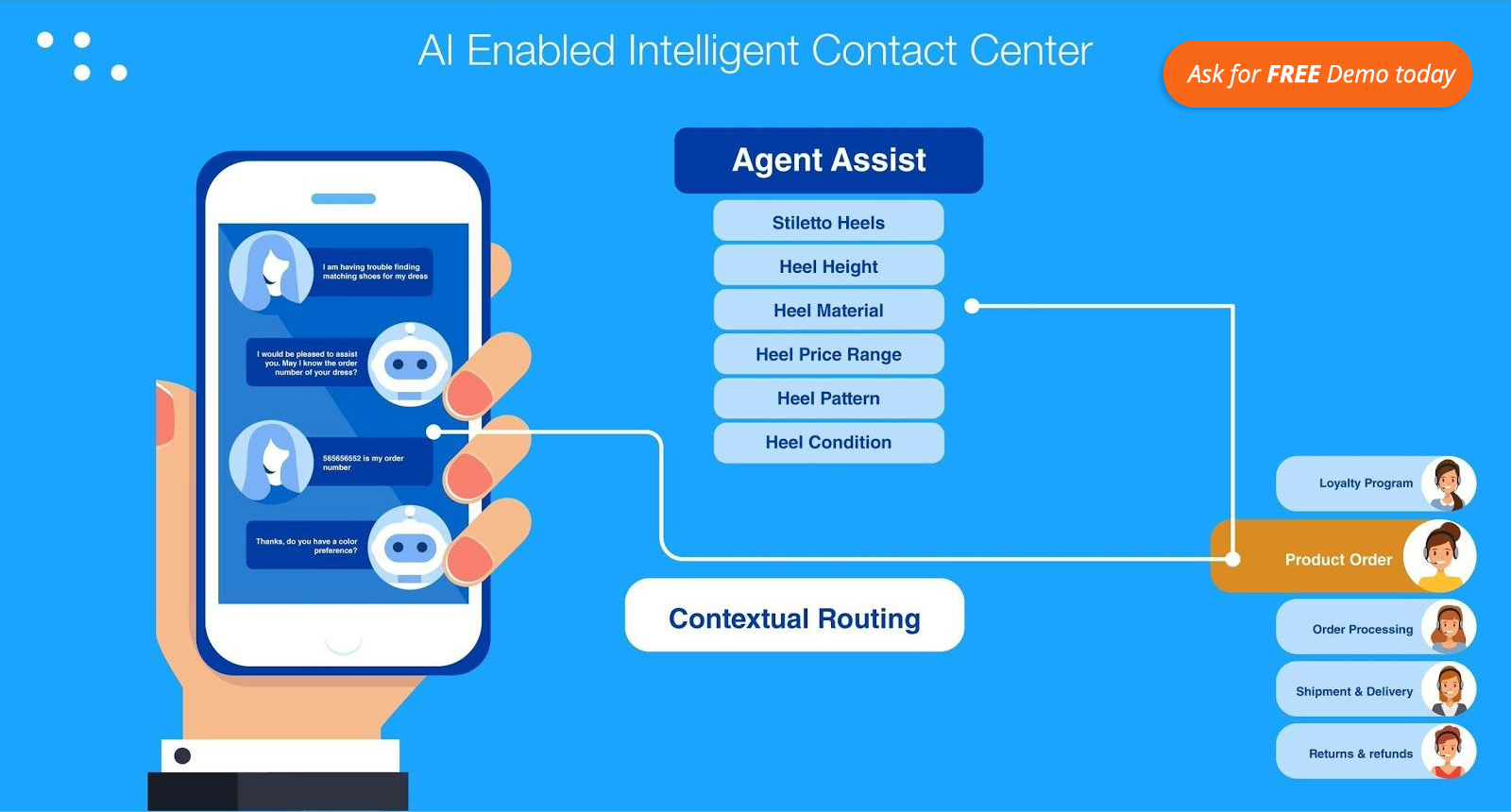Artificial intelligence (AI) and conversational AI are transforming traditional classroom teaching into a more personalized and interactive experience. Conversational AI leverages natural language understanding (NLU) to address student needs accurately in real-time. It provides an efficient, interactive, and personalized environment that is optimally suited for preparing students for success in both the classroom and in life.
How does Conversational AI change the way we learn?
According to a recent report, the global education technology market size was valued at USD 123.40 billion in 2022 and is expected to grow at a CAGR of 13.6% from 2023 to 2030. With the development of AI technologies, a wider range of educational applications is being identified. Today, AI in education is used for intelligent tutoring, personalized learning, adaptive learning, language learning, and virtual teaching assistants.
Conversational AI provides students with access to real-time guidance, mentorship, and feedback, changing how students learn today and paving the way for a brighter future in education. AI-powered educational tools can analyze students' learning patterns, strengths, and weaknesses, and provide personalized learning experiences based on their needs. This approach helps students to learn at their own pace and adapt their learning styles to achieve better results. AI-powered assessments are also changing the way we evaluate student performance. Adaptive assessments can analyze a student's level of understanding and provide more challenging or easier questions based on their performance. This approach saves time and provides more accurate assessments of a student's progress.
Educational institutions can use conversational AI-powered virtual assistants to help students with administrative tasks, such as scheduling classes, finding resources, and answering frequently asked questions. Additionally, conversational AI-powered language learning platforms provide personalized feedback, conversation practice, and speech recognition to help students improve their language skills.
It is also imperative to drive inclusivity by ensuring that educational content is accessible to students across the globe, in the language of their choice. To this end, AI-enabled translation services are critical. Quantiphi’s Enterprise Translation Hub (ETH) is a centralized platform designed to help organizations manage their translation and localization needs. In the context of education, an Enterprise Translation Hub could be used to facilitate the translation of educational materials into multiple languages to support students and educators in different regions or countries.
Google Contact Center AI in Education
Google’s Contact Center Artificial Intelligence (CCAI) Platform brings the power of conversational AI to customers through built-in Contact Center AI offerings like chatbots, voice bots, and telephony helpdesks. Contact Center AI provides a turnkey omnichannel contact center native to the cloud that helps enterprises solve business problems across industries, including education.
Education institutions can leverage Contact Center AI for a wide range of applications;
Student support and services: Educational institutions can automate student support services such as answering queries on courses, admission processes, etc. This approach will ensure faster, accurate, and personalized support to students around the clock.
Improving student engagement: Contact Center AI helps enhance student engagement by providing personalized support and recommendations. Quantiphi’s Academic Advising Assistant leverages AI to aid in analyzing student data and suggest personalized learning paths, resources, and activities to help them stay engaged and motivated. This personalized approach can help students stay on track and achieve their goals, leading to better outcomes and higher satisfaction rates.
Enhancing teacher support: Teachers play a critical role in shaping the future of students and ensuring their success. Contact Center AI helps enhance teacher support by providing access to a vast library of educational resources, support materials, and best practices. Teachers can use this information to improve their teaching methods and provide better support to students.
Streamlining administrative processes: Contact Center AI also helps educational institutions streamline administrative processes by automating repetitive tasks and freeing up staff time. This can include tasks such as scheduling appointments, processing admission applications, and handling student inquiries. By automating these processes, institutions can reduce the time and resources spent on administrative tasks and focus on high-level tasks.
Quantiphi’s sQrutinizer: Optimizing Intents for CCAI
Despite significant advancements in conversational AI technologies, instances of suboptimal conversations with virtual agents are still fairly commonplace. Since conversational AI is dependent on human knowledge and input, there is immense potential to constantly improve the performance of voice and chatbots. Quantiphi’s sQrutinizer is an optimization framework for Google CCAI that analyzes conversation logs and identifies utterances that have not been effectively understood by the virtual agent, including fallbacks and false positives. Additionally, sQrutinizer enables users the option to retrain the bot to cover such topics and establish an automated training pipeline.
In keeping with our vision of harnessing AI to pave the way for the future of education, Quantiphi partnered with Google Cloud to build a virtual assistant for Penn State World Campus’ academic advisory services. Click here for further details on this success story.
Get in touch with our experts to learn more about how educational institutions can leverage conversational AI technologies to advance student learning.







